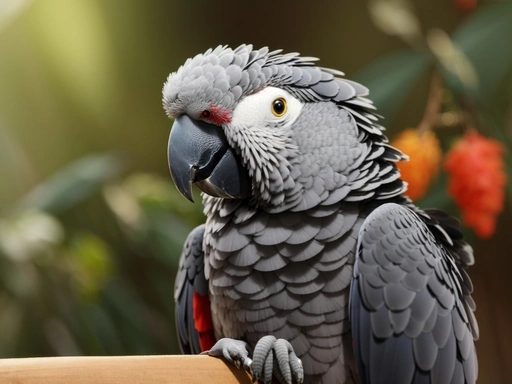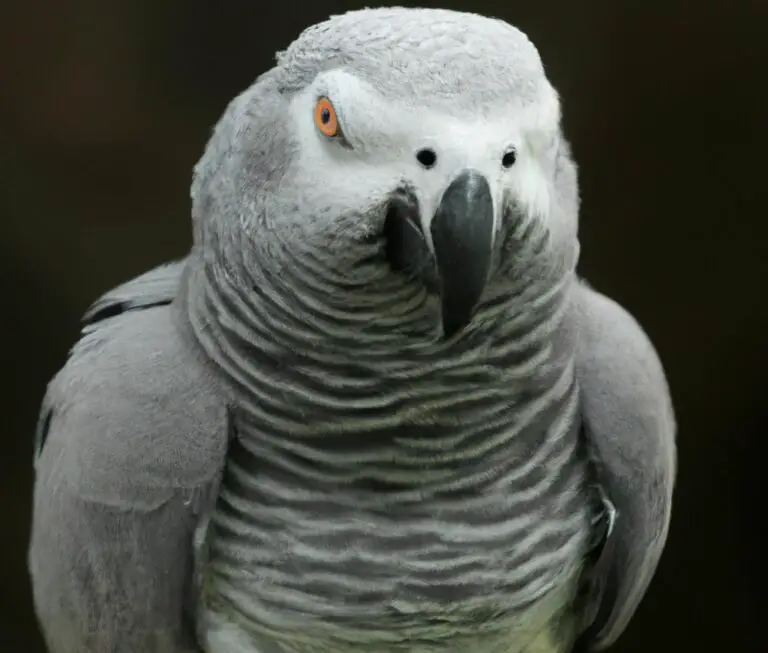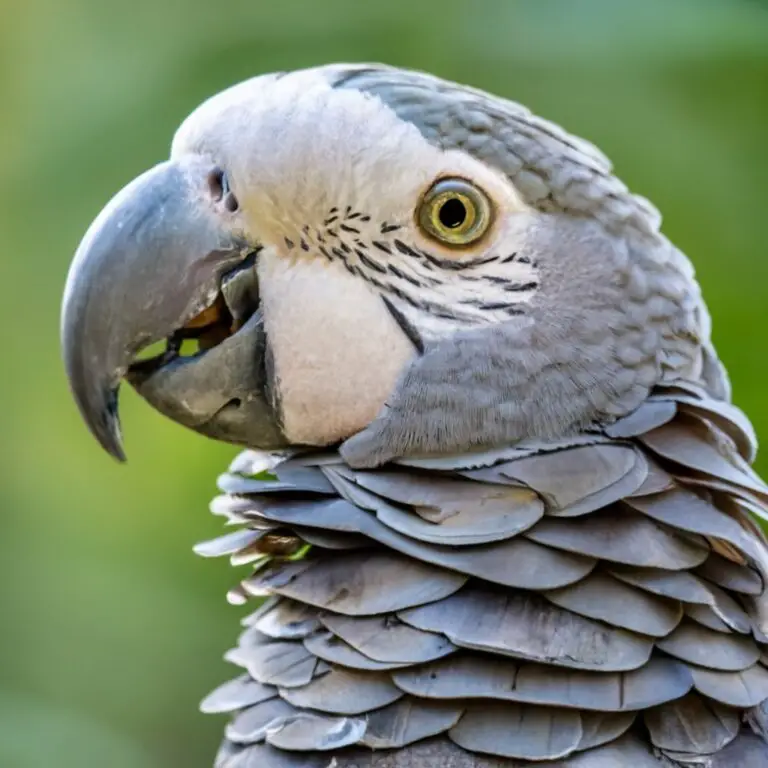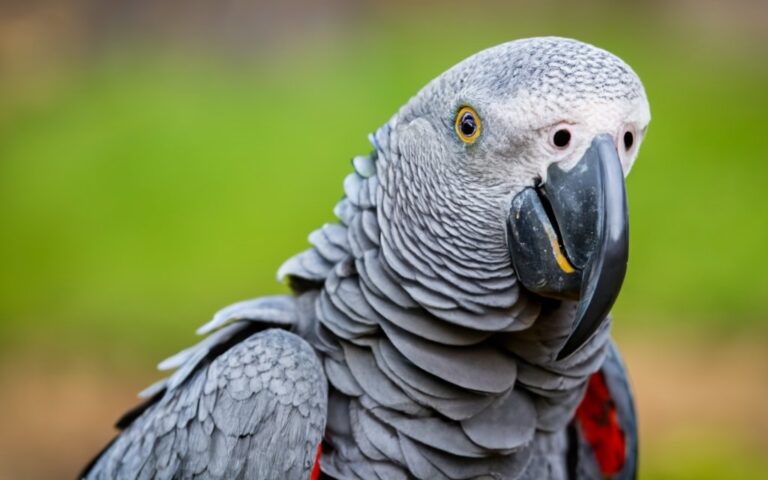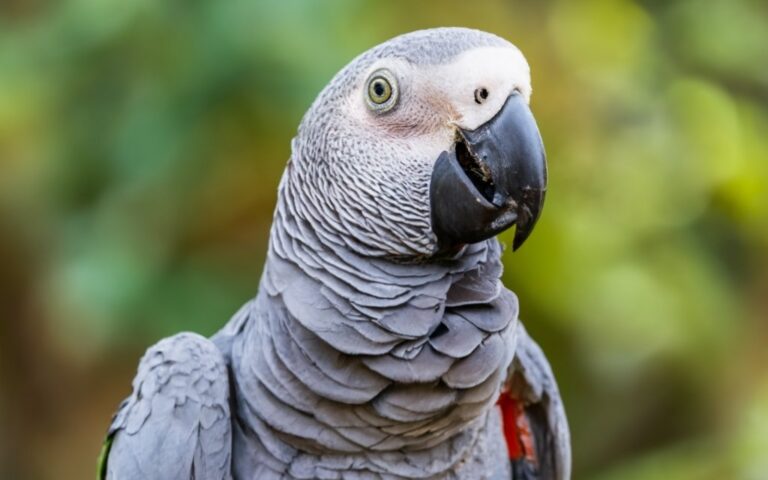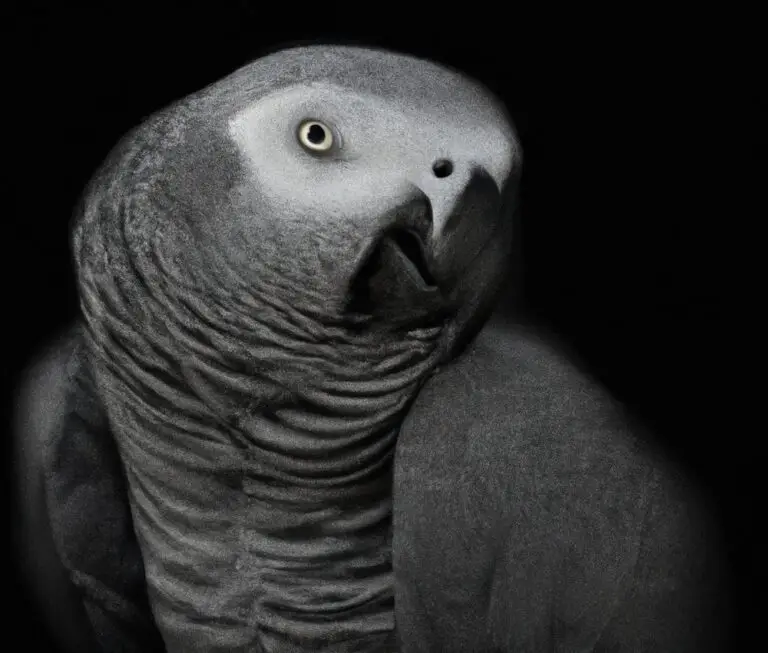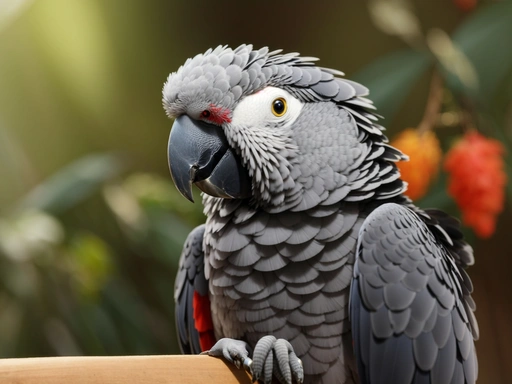Can African Grey Parrots Eat Dundicut Pepper?
Key Takeaways:
- African grey parrots can safely consume dundicut pepper in moderation.
- Dundicut pepper can provide additional nutrients and variety in their diet.
- Introduce dundicut pepper gradually to monitor any adverse reactions.
- Consult with a veterinarian to ensure it aligns with your specific parrot’s dietary needs.
Are you a proud African grey parrot owner, constantly on the lookout for new and exciting foods to offer your feathered friend?
Well, today I’m here to discuss a particularly spicy topic.
Have you ever wondered if your African grey parrot can handle the heat of dundicut pepper?
These magnificent birds have unique dietary needs, and it’s essential to ensure their nutrition is on point.
In this article, we’ll explore the potential benefits and risks of introducing dundicut pepper into your African grey parrot’s diet.
So, get ready to spice things up and discover if your feathered companion can handle the heat!
| Question | Answer |
| Can African grey parrots eat dundicut pepper? | Yes, African grey parrots can eat dundicut pepper but in moderation. |
African Grey Parrots: An Introduction
African Grey Parrots: An Introduction
Physical Characteristics of African Grey Parrots
African Grey Parrots are medium-sized birds with a sleek, streamlined body. They have a distinctive gray plumage with a white mask around their face.
Their beak is powerful and hook-shaped, which helps them crack open nuts and seeds.
They also have bright red tail feathers. Overall, they have a strong and sturdy build, perfect for their acrobatic nature.
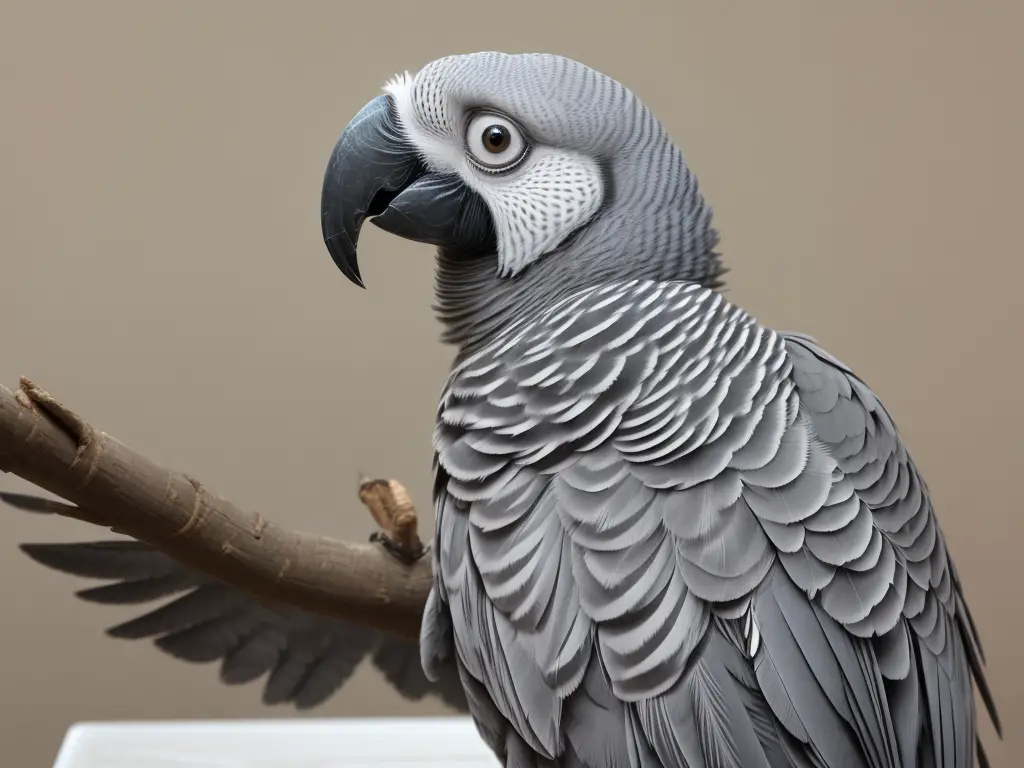
Natural Diet of African Grey Parrots
African Grey Parrots have a natural diet consisting of fruits, vegetables, nuts, seeds, and some insects. They require a balanced diet rich in nutrients like vitamins, minerals, and healthy fats.
Feeding them a variety of fresh, whole foods is key to their health and well-being.
Avoid processed or sugary foods.
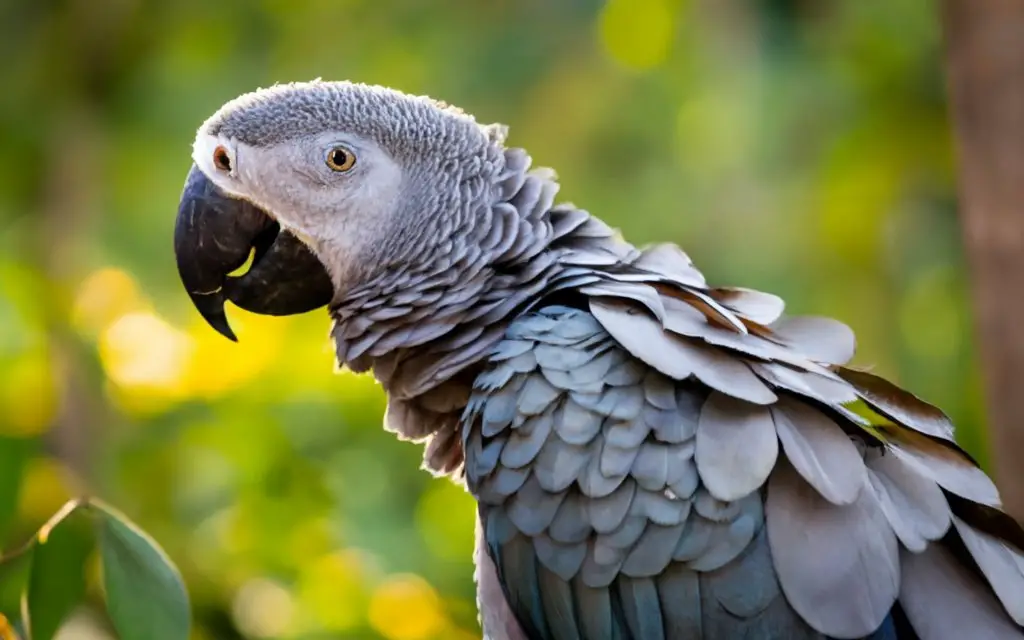
Understanding the Nutritional Needs of African Grey Parrots
African Grey Parrots have specific nutritional needs that must be met for their overall health and well-being.
The Importance of a Balanced Diet
A balanced diet is essential for African Grey Parrots because it provides them with the necessary nutrients for growth, development, and overall health. It helps support their immune system, maintains their weight, and keeps their feathers and skin in good condition.
A balanced diet consists of a variety of fruits, vegetables, grains, and protein sources.
It’s important to provide a well-rounded diet to ensure your parrot receives all the necessary nutrients for optimal health.
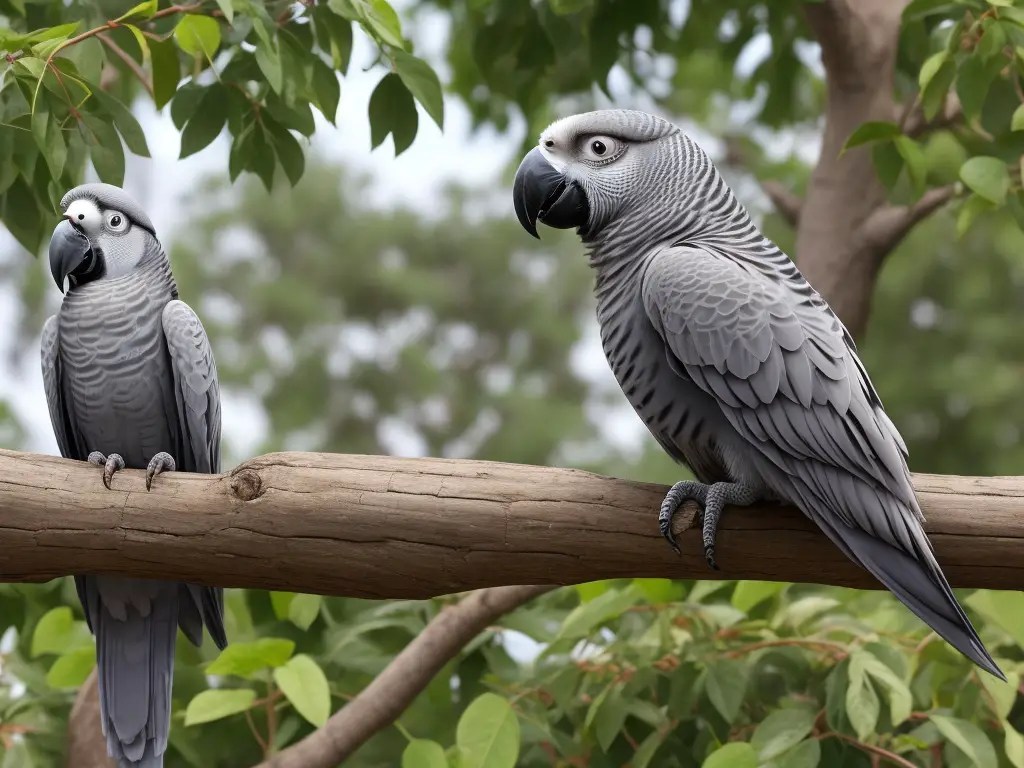
Nutrients Essential for African Grey Parrots
African Grey Parrots require a balanced diet that includes various essential nutrients. These nutrients include:
- Protein: Crucial for muscle development and overall health. Provide high-quality sources like lean meats, eggs, and legumes.
- Calcium: Important for strong bones and eggshell formation. Offer calcium-rich foods like dark leafy greens, broccoli, and fortified pellets.
- Vitamin A: Essential for vision, skin health, and immune function. Include foods like carrots, sweet potatoes, and orange fruits.
- Vitamin D: Needed for proper absorption and utilization of calcium. Natural sunlight exposure or vitamin D-rich foods can fulfill this requirement.
- Omega-3 Fatty Acids: Beneficial for brain health and feather quality. Offer foods like flaxseeds, chia seeds, and walnuts.
- Iron: Necessary for red blood cell production. Incorporate iron-rich foods like leafy greens, pumpkin seeds, and dried apricots.
- Vitamin C: Helps boost the immune system and aids in iron absorption. Include foods like bell peppers, citrus fruits, and berries.
By providing a well-rounded diet that includes these essential nutrients, you can ensure the overall health and well-being of your African Grey Parrot.
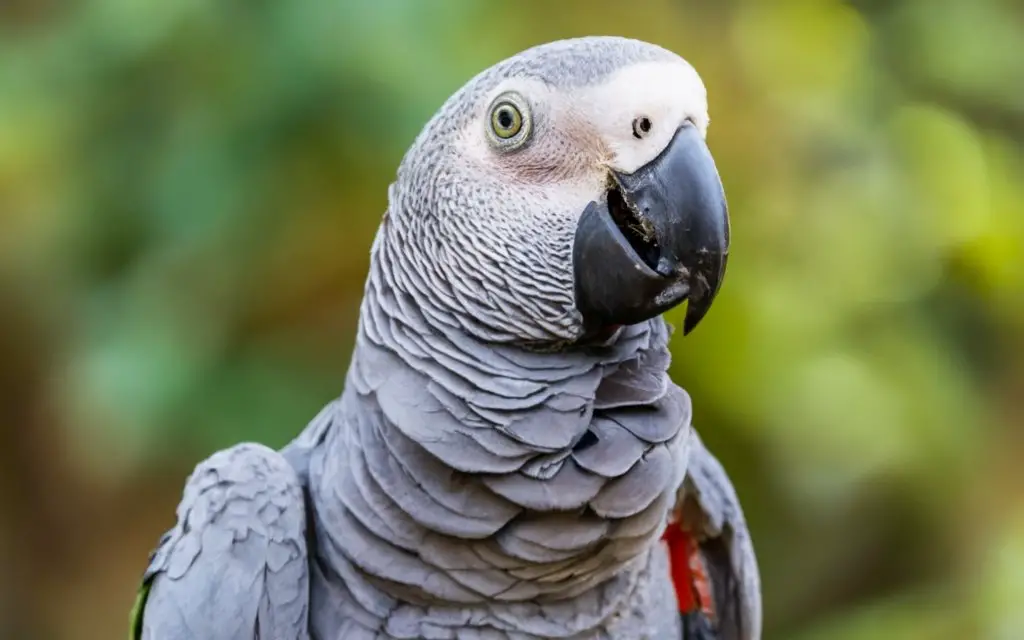
Common Fruits and Vegetables for African Grey Parrots
African Grey Parrots can enjoy a variety of fruits and vegetables as part of their balanced diet.
Some common options include apples, bananas, grapes, oranges, strawberries, carrots, broccoli, spinach, and bell peppers.
Just make sure to wash them thoroughly and remove any seeds or pits before offering them to your parrot.
Can African Grey Parrots Eat Spicy Foods?
African Grey Parrots should not be fed spicy foods, as it can cause digestive issues and be harmful to their overall health.
Factors to Consider Before Feeding Spicy Foods
Factors to Consider Before Feeding Spicy Foods:
Spicy Foods to Avoid for African Grey Parrots
Spicy foods can be harmful to African Grey Parrots.
Avoid feeding them spices like chili powder, cayenne pepper, or any other hot spices.
These can irritate their digestive system and cause discomfort.
Stick to a balanced diet of fruits, vegetables, and pellets to keep them healthy and happy.
The Potential Benefits of Feeding Dundicut Pepper to African Grey Parrots
Feeding Dundicut pepper to African Grey parrots can provide potential health benefits due to its nutritional value.
Nutritional Value of Dundicut Pepper
Dundicut pepper is rich in vitamins A, C, and E, which are essential for the health of African grey parrots. It also contains minerals like potassium and magnesium.
These nutrients support the parrot’s immune system, enhance their feather quality, and contribute to overall well-being.
However, it’s important to introduce it gradually and monitor for any adverse reactions.
Possible Health Benefits for African Grey Parrots
Dundicut pepper can potentially provide various health benefits for African Grey Parrots.
It is a good source of vitamins A, C, and E, which support their immune system and promote healthy skin and feathers.
The pepper’s antioxidants also help in preventing cell damage and reducing inflammation.
Additionally, the capsaicin in dundicut pepper may have analgesic properties, providing pain relief for parrots with arthritis or joint pain.
However, it is necessary to introduce this spicy food slowly and monitor for any adverse reactions.
Risks and Precautions When Feeding Dundicut Pepper to African Grey Parrots
Feeding Dundicut pepper to African Grey Parrots can pose risks, so it’s important to take precautions.
Sensitivity of African Grey Parrots to Spicy Foods
African Grey Parrots are generally sensitive to spicy foods. Their digestive systems are not equipped to handle the heat and may lead to digestive issues and discomfort.
It’s important to avoid feeding them spicy foods to ensure their well-being.
Introducing Dundicut Pepper to Your African Grey Parrot’s Diet
Introducing Dundicut pepper to your African Grey Parrot’s diet.
Gradual Introduction and Monitoring
To introduce Dundicut pepper to your African Grey Parrot’s diet, it’s important to do so gradually. Start by offering a small piece and monitor their reaction closely.
If they show no adverse effects, you can slowly increase the quantity over time.
Keep a close eye on their behavior and digestion to ensure they tolerate it well.
Recommended Quantity and Frequency
For African Grey Parrots, it is recommended to introduce Dundicut pepper in small quantities and monitor their response. Start with a tiny piece and gradually increase the amount.
However, it is important not to overdo it, as too much spice can cause digestive issues.
Feed spicy foods like Dundicut pepper only occasionally, as a treat, rather than a staple in their diet. Always observe your parrot’s reactions and adjust accordingly.
Frequently Asked Questions about African Grey Parrots and Dundicut Pepper
Can African Grey Parrots Eat Other Types of Peppers?
Yes, African Grey Parrots can eat some types of peppers, but not all. Mild peppers like bell peppers are safe for them to consume.
However, it’s important to avoid feeding them spicy peppers, as they can cause digestive issues and discomfort.
Always introduce new foods gradually and monitor your parrot for any adverse reactions.
Final Verdict
African Grey Parrots can indeed eat Dundicut pepper, but it should be done with caution and in moderation.
The nutritional value and potential health benefits of this pepper make it a suitable addition to their diet.
However, it is important to consider the sensitivity of these parrots to spicy foods and to monitor for any adverse reactions.
Gradually introducing Dundicut pepper and paying attention to quantity and frequency can help ensure the well-being of your African Grey Parrot.
When in doubt, consult with a veterinarian to ensure the safety and health of your feathered friend.

